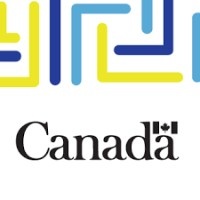
Zero Emission Transit Fund
At a glance
- Up to 80% of project cost
- Unspecified
- Transportation and warehousing
- Canada
- Non-profit
- Public or Parapublic institution
- For-profit business
- All revenue ranges
- All organization sizes
- Indigenous Peoples
- Primary and Secondary Education
- Other Education
- Research
- Environment
- Economic, Social and Community Development
- General public
- Children & youth
- Indigenous peoples
- People with disabilities
- Rural / Remote communities
- Nonprofits / charities
- Academia / students
- Low-income individuals / families
- All structures
- Municipal
- Regional
- Provincial
- National
Overview
The Zero Emission Transit Fund, facilitated by Housing, Infrastructure and Communities Canada, aims to support public transit and school bus operators in Canada with the shift to zero emission alternatives. The program provides funding for planning projects like feasibility studies and modelling, as well as capital projects including the procurement of zero emission buses, and the necessary charging and refueling infrastructure. Eligible applicants include provinces, territories, municipalities, transit agencies, school boards, and private school bus operators.
Activities funded
The Zero Emission Transit Fund supports projects that aid the transition to cleaner transportation systems in Canada. Eligible projects focus on both planning and implementing capital initiatives for zero emission buses (ZEBs).
- Planning projects including studies, modelling, and feasibility analysis for ZEB deployment.
- Capital projects for the procurement of zero emission buses.
- Construction and installation of charging and refueling infrastructure for ZEBs.
- Retrofits of conventional buses to zero emission powertrains.
Eligibility
Eligibility for this grant is determined by the type of legal entity and its associated partnerships.
- The applicant must be a legal entity capable of entering into legally binding agreements.
- Eligible applicants include municipalities, local and regional governments established under provincial or territorial statute, including service districts.
- Provinces or Territories can apply for the grant.
- Public sector bodies established by or under provincial or territorial statute or by regulation, or wholly-owned by a province, territory, municipal or regional government, such as transit agencies and school boards, are eligible.
- Indigenous governing bodies, including but not limited to band councils under the Indian Act, First Nation, Inuit or Métis governments established by comprehensive agreements, or under federal or provincial legislation incorporating a governance structure, can apply.
- Federally or provincially incorporated not-for-profit organizations whose mandate is to improve Indigenous outcomes, including those serving Indigenous communities in urban centers and First Nations living off reserve, are eligible.
- Indigenous development corporations are eligible for the fund.
- Private sector school bus operators, in partnership with a public school board or municipal, regional or provincial/territorial government, are eligible, provided written confirmation of the partnership is submitted.
- Private sector accessible transit bus operators, in partnership with a transit agency or municipal, regional or provincial/territorial government, are eligible, provided written confirmation of the partnership is submitted.
- Federally or provincially incorporated not-for-profit organizations, such as professional and industry associations, NGOs, and academic institutions, in partnership with an eligible recipient described above, are eligible, given written confirmation of the partnership is provided.
- A group application where an eligible recipient applies on behalf of multiple other eligible recipients is permissible, with the lead applicant responsible for providing all necessary project information.
Who is eligible?
To be considered eligible for the Zero Emission Transit Fund (ZETF), applicants must be legal entities capable of entering into legally binding agreements and must fall under one of the following categories:- Municipalities, local and regional governments established under provincial or territorial statute, including service districts.- Provinces or Territories.- Public sector bodies established by or under provincial or territorial statute or by regulation, or wholly-owned by a province, territory, municipal, or regional government (e.g., transit agencies and school boards).- Indigenous governing bodies such as: - A band council as defined by the Indian Act. - A First Nation, Inuit, or Métis government or authority established under a Self-Government or Comprehensive Land Claim Agreement approved by the federal government. - Indigenous governments established by legislation with a governance structure.- Federally or provincially incorporated not-for-profit organizations committed to improving Indigenous outcomes, including organizations serving urban Indigenous communities and First Nations living off-reserve.- Indigenous development corporations.- Private sector school bus operators in partnership with public school boards or municipal, regional, or provincial/territorial governments (requires written confirmation of the partnership).- Private sector accessible transit bus operators in partnership with a transit agency or municipal, regional, or provincial/territorial governments (requires written confirmation of the partnership).- Federally or provincially incorporated not-for-profit organizations such as professional and industry associations, NGOs, and academic institutions in partnership with an eligible recipient (requires written confirmation of the partnership).- Group applications where an eligible recipient applies on behalf of multiple eligible recipients as the lead applicant, providing all necessary project information for each represented recipient.Who is not eligible
The Zero Emission Transit Fund does not explicitly list ineligible types of companies or industries. However, some restrictions can be inferred based on the eligibility requirements and objectives of the program.
- Private sector bus operators not in partnership with a public school board, transit agency, or government body.
- For-profit entities where project benefits do not broadly accrue, such as limited GHG reductions or accessibility improvements.
- Projects or companies with ongoing maintenance, operational, or electricity costs unrelated to capital deployment.
- Purchases related to diesel or hybrid buses and fossil fuel-reliant infrastructures.
- Companies that have not undergone necessary project planning or lack sufficient existing plans for electrification deployment.
- Entities not established under provincial or territorial statutes or lacking the ability to enter legally binding agreements.
Eligible expenses
This grant supports projects that advance electrification in public transit and school transportation, aiming for improved air quality and operational efficiency through planned and capital investments. Eligible projects focus on strategic planning and the deployment of zero emission bus technologies.
- Planning projects for studies, modelling, and feasibility analysis supporting zero emission bus deployments.
- Capital projects for the procurement of zero emission buses and required charging/refueling infrastructure.
- Retrofit of existing conventional fuel buses to zero emission buses.
Eligible geographic areas
The Zero Emission Transit Fund (ZETF) is accessible to public and private sector entities across Canada. Eligible applicants include municipalities, local and regional governments, and organizations operating nationwide.
- Municipalities, local and regional governments established under provincial or territorial statutes.
- Provinces or Territories in Canada.
- Public sector bodies established by provincial or territorial statutes, or wholly-owned by regional or municipal governments.
- Organizations serving Indigenous communities across Canada.
- Private sector operators in partnership with public entities across Canada.
Selection criteria
The evaluation and selection of projects for the Zero Emission Transit Fund (ZETF) are based on specific criteria outlined in the evaluation matrices, focusing on planning and capital components.
- System-level Planning: Involves a system-wide analysis of ZEB technologies and identifying infrastructure needs, barriers, and challenges unique to the project.
- Operational Planning and Deployment Strategy: Supports innovative ZEB deployments, optimal route selection, and establishes a strategy to measure project performance.
- Financial Planning: Estimates lifecycle cost savings and provides preliminary cost estimates for ZEB deployment projects.
- Capacity to Implement the Technology: Identifies capacity needs and potential risks, and develops a risk management plan for deploying ZEBs.
- Environmental Benefits: Includes a lifecycle assessment of environmental benefits, estimating GHG and pollutant reductions.
How to apply
Access Application Portal
- Visit the Housing, Infrastructure and Communities Canada’s online application portal.
- If unable to access the portal, contact the ZETF team at ZETF-FTCZE@infc.gc.ca.
Submit Expression of Interest (Stage I)
- Complete the Expression of Interest (EOI) to assess eligibility and project planning level.
- Provide details on the project's scope, costs, timelines, and potential savings if applicable.
- Submit EOI through the application portal.
- Wait for feedback regarding eligibility and readiness for Stage II.
Prepare and Submit Planning or Capital Project Application (Stage II)
- If directed to Stage II Planning Stream for transit, choose between CUTRIC support or submit a Planning application form to HICC for approval.
- If directed to Stage II Planning for school buses, complete and submit a Planning application form to HICC.
- For Capital Projects, complete and submit a Capital application form to HICC.
- Include comprehensive details of the project plan, financial planning, and potential cost savings.
Finalization and Agreements
- Engage with Housing, Infrastructure and Communities Canada and the CIB as guided for financing possibilities and project viability.
- Sign a contribution agreement with Housing, Infrastructure and Communities Canada if approved.
- If CIB shows interest, negotiate and sign Memorandum of Understanding and contribution agreements on project financing.
Additional information
Additional details about the grant include requirements regarding environmental assessments, the duty to consult with Indigenous groups, sole-source contracting, reporting and audit requirements, and asset disposal protocols.
- Environmental assessment may be required depending on project location.
- The duty to consult with Indigenous groups may necessitate engagement and consultation costs in project estimates.
- Sole-source contracting must be justified and approved to ensure fairness and transparency.
- Approved projects must provide various reports, including annual and final reports, financial statements, and potentially one audit from an independent third party.
- Repayment may be required if assets financed by the grant are sold within 10 years.
Contacts
Frequently Asked Questions about the Zero Emission Transit Fund Program
What is the Zero Emission Transit Fund?
How much funding can be received?
Who is eligible for the Zero Emission Transit Fund program?
What expenses are eligible under Zero Emission Transit Fund?
Who can I contact for more information about the Zero Emission Transit Fund?
Where is the Zero Emission Transit Fund available?
Is the Zero Emission Transit Fund a grant, loan, or tax credit?
More programs like this

Incentives for medium and heavy-duty zero-emission vehicles (iMHZEV) Program
Transport Canada (TC)
Canada Public Transit Fund
Housing, Infrastructure and Communities Canada (HICC)
Active Transportation Fund
Housing, Infrastructure and Communities Canada (HICC)
Enhanced Road Safety Transfer Payment Program (ERSTPP)
Transport Canada (TC)
Advancing Accessibility Standards Research
Accessibility Standards Canada (ASC)
Canada Public Transit Fund (CPTF)
Housing, Infrastructure and Communities Canada (HICC)
Zero Emission Vehicle Awareness Initiative — Light-Duty Vehicle — For-profit
Natural Resources Canada (NRCan)
Zero Emission Vehicle Awareness Initiative — Light-Duty Vehicle — Not-for-profit
Natural Resources Canada (NRCan)
NRC — Automotive and Surface Transportation
National Research Council Canada (NRC)